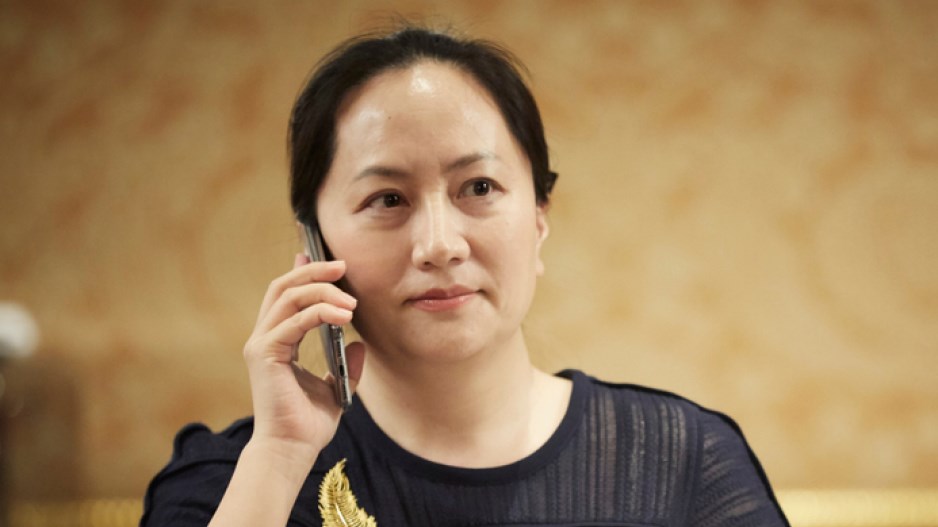Legal wranglings surrounding the extradition proceedings facing Huawei Technologies Co. Ltd. CFO Meng Wanzhou will resume Monday, as defence lawyers will formally apply for a stay in the case.
While the formal extradition hearing itself will not get underway until next January, the application for a stay (due to what Meng’s defence team describes as an “abuse of process” by Canadian authorities in arresting the Huawei executive at YVR last December) could reveal important information on the case, legal observers say.
Defence lawyer Richard Peck said in filings earlier this summer that Meng is not seeking the disclosure of information pertaining to actions by the United States and comments made by President Donald Trump that the defence views as “threatening in nature, corrosive to the rule of law, and abusive to the processes of the Extradition Act.”
Rather, Meng’s defence appears to want to focus on the events surrounding the actual arrest at YVR on Dec. 1, 2018. In court documents, Peck is seeking clarification on the actions of the Canada Border Services Agency (CBSA) and the RCMP on whether Meng’s arrest was intentionally delayed for authorities to “unlawfully detain, search and interrogate” the Huawei executive.
The U.S. has accused Meng and Huawei of violating U.S. trade sanctions in Iran, laundering the proceeds through the American banking system, and stealing technological secrets from other companies in the United States.
Renowned immigration lawyer (and federal policy consultant) Richard Kurland said the stay application process will likely be highly technical and drawn out, meaning the most heated points of contention will not be discussed until the main extradition hearing launches in January.
Rather, Kurland likened the proceedings starting Monday as “assembling a castle stone-by-stone,” as the defence and crown prosecutors try to establish a baseline of facts and evidence from which the formal arguments will be made.
“Likely, their [the defence’s] aim is the challenge information and documents to prevent some of it going into evidence, and they will try to build the case with the goal of establishing the need for a stay of proceedings,” Kurland said. “That could be the manner in which the information is gathered. It could be in support of a fact pattern that supports a Charter [of Rights and Freedoms] violation… It’s meticulous work with lots of Q&A, and it’s all rather technical.”
A key piece of information, Kurland noted, may be the recording (video or audio) of Meng’s interview with authorities. This summer, some video of Meng’s wait while under CBSA/RCMP detention was released, but Kurland said the recordings of the actual interview would be fundamentally important in the case.
“Is there another tape available? Is there a disclosure of all the recordings, audio and visual?” he said. “I know in my cases involving CBSA, in interviews with clients, typically those interviews are recorded by the CBSA… So my question is, has this information been disclosed yet? Because that’s key.”
While unlikely, the Meng case could theoretically be resolved quickly if the Supreme Court of British Columbia determines a stay is warranted. The case could also be resolved if the government of Canada (under justice minister David Lametti) decides to withdrawn extradition proceedings, although experts have said such a move would cause serious rancour between Ottawa and Washington.
The Meng case has driven Ottawa’s relationship with Beijing into the deep freeze, with two Canadians now detained in China on espionage charges (which are widely seen as retaliation for Meng’s arrest) and Canadian canola, pork and beef exports halted earlier this year.




